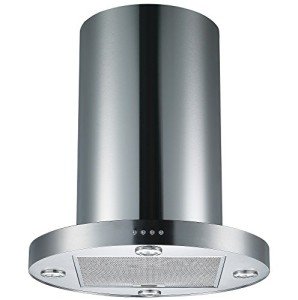Five Things You're Not Sure About About Kitchen Island Extractor
ліёл¬ё
The Essential Guide to Kitchen Island Extractors: A Comprehensive Overview
In contemporary kitchen style, the kitchen island has become a central function, serving both visual and functional functions. To improve the cooking experience, many homeowners are going with kitchen island cooker extractors, which not only get rid of cooking smells but also include to the kitchen's total style. This post will check out numerous aspects of kitchen island extractors, including their advantages, types, setup factors to consider, 48 Island range Hood and maintenance. In addition, common FAQs will also be addressed to supply a clearer understanding of this ingenious kitchen feature.
Comprehending Kitchen Island Extractors
Kitchen island extractors are ventilation systems installed above kitchen islands that help in getting rid of smoke, steam, and smells produced throughout cooking. Unlike traditional hoods that are set up against walls, island extractor fan kitchen extractors hang from the ceiling, making them ideal for open-plan designs that feature a main kitchen island.
Benefits of Kitchen Island Extractors
Improved Air Quality: Best matched for hectic kitchen areas, island hood kitchen extractors significantly improve the air quality by filtering out airborne contaminants.
Boosted Aesthetics: Available in different designs and surfaces, these extractors can complement a kitchen's design, adding a touch of sophistication.
Space Optimization: They release up counter space, as they do not need wall installing, enabling more flexibility in kitchen design.
Personalized: Many models provide adjustable fan speeds, lighting features, and an option of ducted or recirculating choices to match private needs.
Kinds Of Kitchen Island Extractors
1. Ducted Extractors
Ducted kitchen island extractor fans extractors are connected to a duct system that vents air exterior. They are often chosen for their efficiency in removing smoke and odors.
Pros:
- Better air quality
- More reliable at smell removal
- Peaceful operation
Cons:
- More complex installation
- Needs structural alterations
2. Recirculating Extractors
Recirculating extractors filter air through charcoal or grease filters and return the purified air back into the kitchen. These are ideal for spaces where ductwork isn't possible.

Pros:
- Easier installation
- Less invasive
Cons:
- Less effective at smell removal
- Regular filter replacements needed
3. Downdraft Extractors
Downdraft extractors are incorporated into the countertop and rise up during use. Although they are not as popular as standard hoods, they are a fantastic option for minimalistic designs.
Pros:
- Space-saving design
- Suitable for specific layouts
Cons:
- Less efficient compared to standard extractors
- Greater installation costs
| Type | Pros | Cons |
|---|---|---|
| Ducted | Outstanding air quality, peaceful | Complex installation |
| Recirculating | Easy setup, less intrusive | Regular filter modifications required |
| Downdraft | Space-saving, streamlined design | Greater expenses, less effective |
Installation Considerations
Setting up a kitchen island extractor hood for island requires cautious preparation. Here are some necessary aspects to keep in mind:
Height: The ideal height for installing an extractor is 30-36 inches above the cooking surface area. For gas ranges, the height must be closer to 36 inches.
Size: Ensure the extractor is 6-12 inches wider than the cooktop on all sides for optimal efficiency.
Ducting: If choosing for a ducted extractor, plan for duct positioning. This might need ceiling modifications or extra building and construction work.
Electrical Supply: Ensure compliance with regional codes and policies when setting up electrical parts for lighting and motor functions.
Style Compatibility: Consider the kitchen's total style style and select an extractor that harmonizes with existing elements.
Maintenance and Care
To make sure optimum efficiency, routine maintenance of kitchen island extractors is necessary. Here are some pointers:
Clean Filters Regularly: Depending on the type of extractor, filter cleaning or replacement should be done every 1-3 months.
Check the Motor: Regularly check the motor and fan for debris accumulation and guarantee they are working correctly.
Lube Moving Parts: Lubrication will extend the life of your extractor and minimize noise levels.
Look For Duct Blockages: If you have a ducted system, regularly examine for any obstructions or damage to the ductwork.
FAQs About Kitchen Island Extractors
1. How do I select the ideal size extractor for my kitchen?
Selecting the ideal size extractor includes measuring the width of your cooktop and ensuring the extractor is 6-12 inches larger on either side.
2. Are kitchen island extractors loud?
A lot of contemporary kitchen island extractors are designed for quiet operation, specifically at lower fan speeds. However, sound levels can vary based upon design and settings.
3. What is the average cost of a kitchen island extractor?
Rates can range from вӮӨ 200 to over вӮӨ 2,000, depending upon the brand name, type, and features. Setup expenses will differ based on regional labor rates and the complexity of the installation.
4. Can I set up an extractor myself?
While some house owners go with DIY installation, it is recommended to work with a professional, particularly for ducted systems, to make sure security and compliance with local codes.
5. How frequently should I have my kitchen island extractor serviced?
An annual service by a professional is advisable for ducted systems to inspect for blockages, while recirculating systems ought to have filters changed every few months.
In conclusion, kitchen 48 island range hood (http://psicolinguistica.letras.ufmg.br) extractors are both practical and elegant options for contemporary kitchen areas. With different types, setup considerations, and upkeep needs, it's necessary for property owners to educate themselves about the different choices available. By selecting the best extractor, they can develop an enjoyable cooking environment and improve the kitchen's performance and look.

лҢ“кёҖлӘ©лЎқ0
лҢ“кёҖ нҸ¬мқёнҠё м•ҲлӮҙ